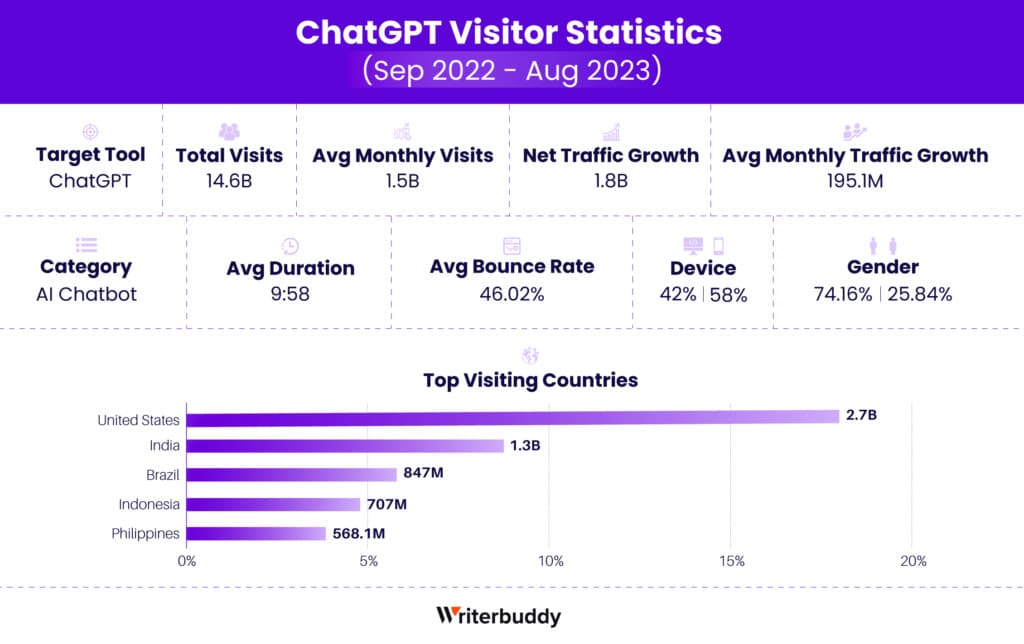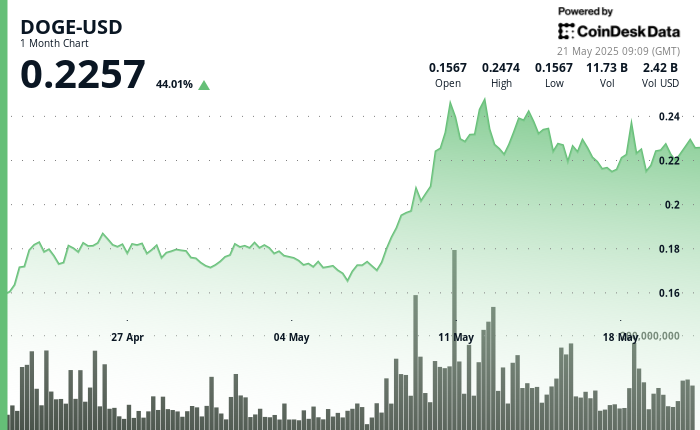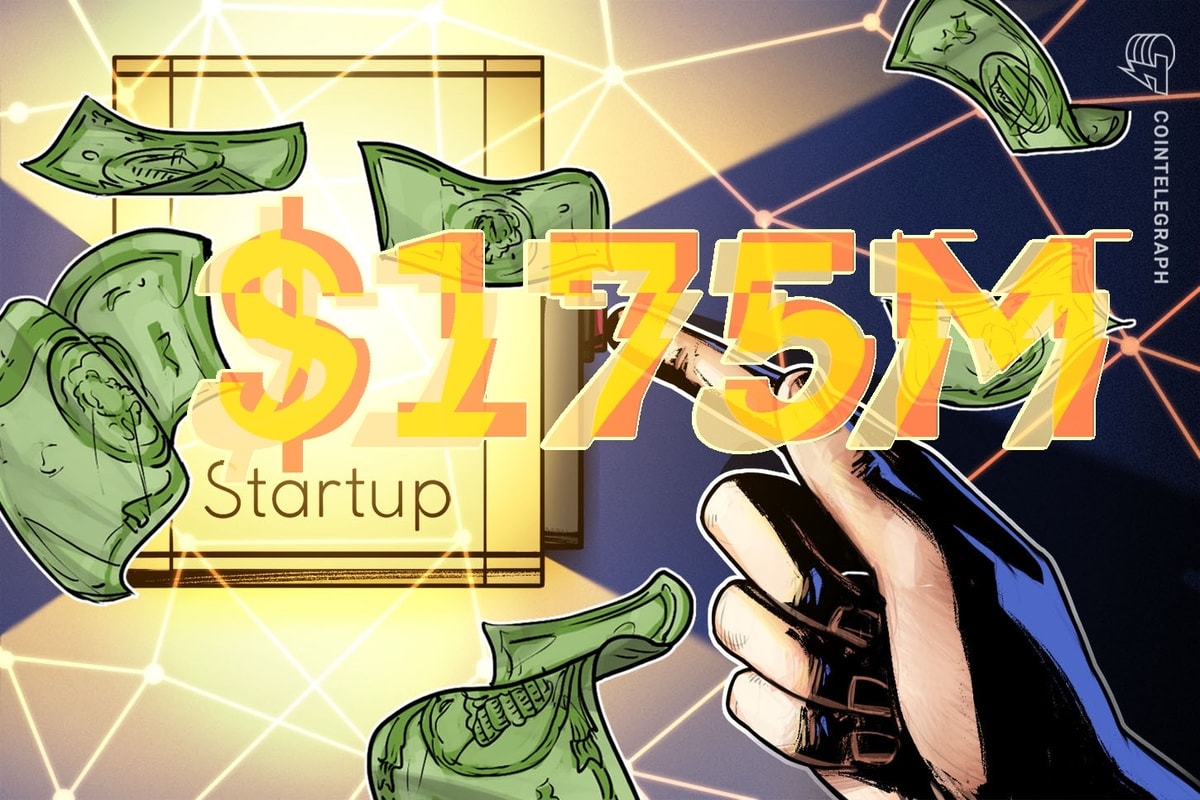

In Brief
Today on 30 November 2023, OpenAI’s generative AI chatbot ChatGPT celebrates its one year since its launch in research preview.

Today on 30 November 2023 — OpenAI’s ChatGPT is celebrates its one year since its launch in research preview. Over the course of the past year, ChatGPT has navigated a dynamic trajectory marked by significant technological strides, unforeseen obstacles and a notable episode of corporate upheaval involving the abrupt removal and subsequent reinstatement of CEO and co-founder Sam Altman.
“A year ago tonight we were probably just sitting around the office putting the finishing touches on chatgpt before the next morning’s launch,” said Altman on platform X (formerly Twitter).
On January 2023, ChatGPT surged to an impressive 100 million. Just weeks ago, on December 7, 2023 it crossed the 1 million user mark within a week of its launch, surpassing Twitter’s two-year timeline to reach the same level.
Notably, ChatGPT’s growth has outpaced TikTok, taking just nine months to reach 100 million users, and Instagram, which achieved this milestone in two and a half years.
ChatGPT has emerged as the most dominant player in the AI tool sector, with a staggering 14 billion visits and seizing 60% of traffic within the top 50 AI platforms, as per a study shared with Metaverse Post, titled “50 Most Visited AI Tools of 2023” by AI writing tool provider writerbuddy.ai.

Meanwhile, rising stars like Character AI, Google Bard and Perplexity AI collectively hold a noteworthy 18.69% of the chatbot market’s monthly visits, underscoring a fierce rivalry in the realm of AI innovation, it added.
Undoubtedly, the advent of ChatGPT stood as a pivotal moment in the trajectory of AI, with far-reaching implications for the years ahead.
The Launch of ChatGPT’s Subscription Model
In February 2023, OpenAI launched ChatGPT Plus, a $20 per month subscription plan aimed at monetizing the widespread popularity of its text-generating AI. This new service offers subscribers benefits beyond the base-level ChatGPT, including general access during peak times, faster response times, and priority access to new features.
The move follows OpenAI’s January announcement about exploring monetization options for ChatGPT and aligns with the organization’s commitment to advancing the capabilities of its AI platform. However, the company continued its free version to be accessible.
“We love our free users and will continue to offer free access to ChatGPT. By offering this subscription pricing, we will be able to help support free access availability to as many people as possible,” the company continued. “We plan to refine and expand this offering based on your feedback and needs.”
Cautious Reflections on the Future of Large Language Models
Copyright laws provide creators of original works with exclusive rights, allowing them to regulate the reproduction, distribution, and adaptation of their creations.
The use of extensive textual datasets to train ChatGPT prompts inquiries into the possible violation of copyright holders’ rights. A major worry associated with large language models revolves around the prospect of producing text that replicates copyrighted material word for word, resulting in outright copying and plagiarism. This matter gives rise to ethical and legal dilemmas, as it has the potential to cause significant financial setbacks for copyright holders and impede the realms of creativity and innovation.
“There is uncertainty about the long-term capabilities of large language models (LLMs). They have to scrape the internet and learn from copyright data. As we go through more litigations in the space, the database will start to grow smaller, limiting LLM performance,” Toby Coulthard, CPO at AI content platform Phrasee told Metaverse Post.
“If you are basing your technology on one model, it may encounter challenges, such as being down for an hour or having these regulated capabilities. Yet despite these challenges, it’s true that LLMs provide creative value and save time on generating content,” Coulthard added.
It is important to note that leveraging multiple LLMs offers several benefits. Diverse training datasets and specialized models enable a broader understanding of language nuances, cultural contexts, and industry-specific requirements.
“Many companies who depend on one model have to face the pitfalls of an LLM plus the costs on top of it. It’s important to have control, reliability, and scalability within your content generation. The solution is being model agnostic, with a hybrid approach to creating the best tools for a job. That might mean having multiple LLMs to mitigate the pitfalls of one, or having rule-based natural language generation that might be less creative, but also doesn’t hallucinate,” Coulthard told Metaverse Post.
Also, the redundancy provided by multiple models ensures system robustness, while ensemble approaches enhance overall performance. This approach mitigates bias, supports multimodal processing, and facilitates scalability, making the system adaptable to various user needs.
Disclaimer
In line with the Trust Project guidelines, please note that the information provided on this page is not intended to be and should not be interpreted as legal, tax, investment, financial, or any other form of advice. It is important to only invest what you can afford to lose and to seek independent financial advice if you have any doubts. For further information, we suggest referring to the terms and conditions as well as the help and support pages provided by the issuer or advertiser. MetaversePost is committed to accurate, unbiased reporting, but market conditions are subject to change without notice.
About The Author
Kumar is an experienced Tech Journalist with a specialization in the dynamic intersections of AI/ML, marketing technology, and emerging fields such as crypto, blockchain, and NFTs. With over 3 years of experience in the industry, Kumar has established a proven track record in crafting compelling narratives, conducting insightful interviews, and delivering comprehensive insights. Kumar’s expertise lies in producing high-impact content, including articles, reports, and research publications for prominent industry platforms. With a unique skill set that combines technical knowledge and storytelling, Kumar excels at communicating complex technological concepts to diverse audiences in a clear and engaging manner.


Kumar is an experienced Tech Journalist with a specialization in the dynamic intersections of AI/ML, marketing technology, and emerging fields such as crypto, blockchain, and NFTs. With over 3 years of experience in the industry, Kumar has established a proven track record in crafting compelling narratives, conducting insightful interviews, and delivering comprehensive insights. Kumar’s expertise lies in producing high-impact content, including articles, reports, and research publications for prominent industry platforms. With a unique skill set that combines technical knowledge and storytelling, Kumar excels at communicating complex technological concepts to diverse audiences in a clear and engaging manner.
Read More: mpost.io









 Bitcoin
Bitcoin  Ethereum
Ethereum  Tether
Tether  XRP
XRP  Solana
Solana  USDC
USDC  Dogecoin
Dogecoin  Cardano
Cardano  TRON
TRON  Lido Staked Ether
Lido Staked Ether  Wrapped Bitcoin
Wrapped Bitcoin  Sui
Sui  Wrapped stETH
Wrapped stETH  Chainlink
Chainlink  Avalanche
Avalanche  Stellar
Stellar  Hyperliquid
Hyperliquid  Shiba Inu
Shiba Inu  Hedera
Hedera  LEO Token
LEO Token  Bitcoin Cash
Bitcoin Cash  Toncoin
Toncoin  Litecoin
Litecoin  Polkadot
Polkadot  USDS
USDS  WETH
WETH  Monero
Monero  Wrapped eETH
Wrapped eETH  Bitget Token
Bitget Token  Binance Bridged USDT (BNB Smart Chain)
Binance Bridged USDT (BNB Smart Chain)  Pi Network
Pi Network  Pepe
Pepe  Ethena USDe
Ethena USDe  Coinbase Wrapped BTC
Coinbase Wrapped BTC  WhiteBIT Coin
WhiteBIT Coin  Aave
Aave  Uniswap
Uniswap  Dai
Dai  Bittensor
Bittensor  NEAR Protocol
NEAR Protocol  Aptos
Aptos  OKB
OKB  Jito Staked SOL
Jito Staked SOL  Ondo
Ondo  BlackRock USD Institutional Digital Liquidity Fund
BlackRock USD Institutional Digital Liquidity Fund  Official Trump
Official Trump  Cronos
Cronos  Tokenize Xchange
Tokenize Xchange